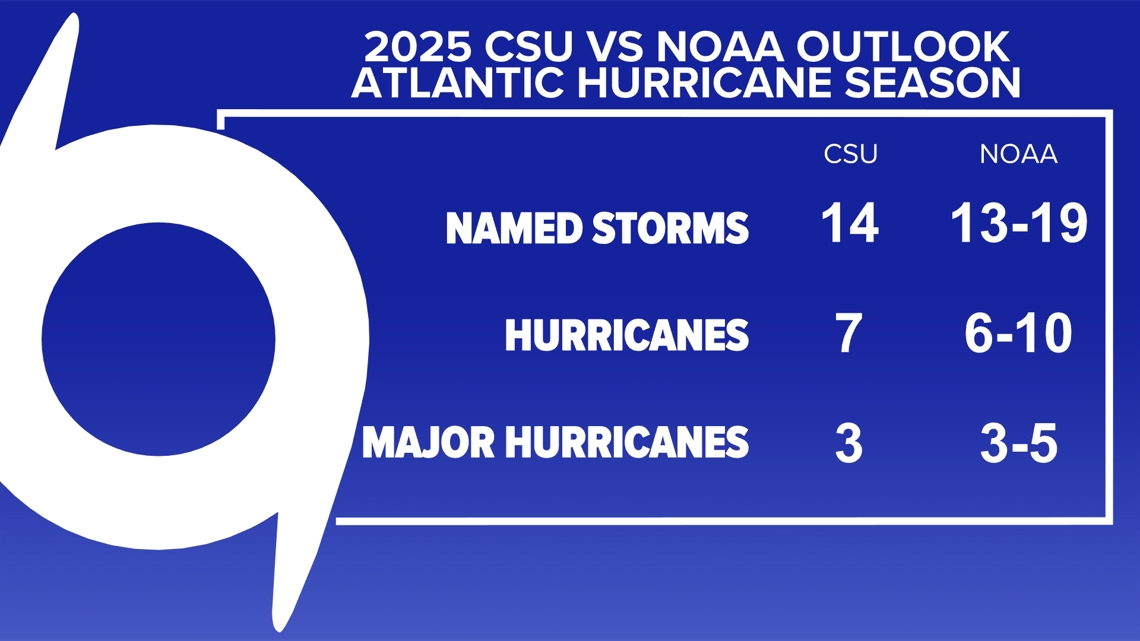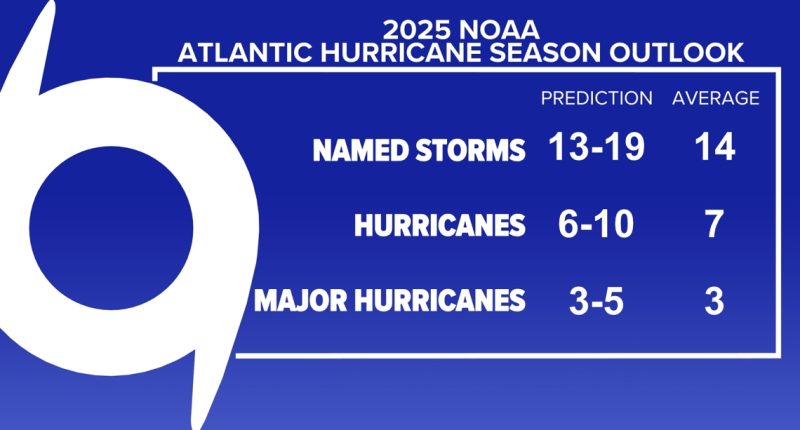Share this @internewscast.com
The NOAA indicated that ongoing ENSO-neutral conditions, above-average ocean temperatures, and predictions for minimal wind shear are key elements in its forecast.
TAMPA, Fla. — Scientists from the National Oceanic and Atmospheric Administration (NOAA) released their 2025 Atlantic hurricane season outlook on Thursday, anticipating more activity than usual.
According to their report, there’s a 60% probability of experiencing an above-average hurricane season, which extends from June 1 to Nov. 30. Additionally, there’s a 30% likelihood of a near-normal season and 10% chance of a below-normal season.
The agency is forecasting between 13 to 19 named storms with winds of 39 mph or higher. Of those, six to 10 are expected to become hurricanes with winds of 74 mph, including three to five major hurricanes — a Category 3, 4 or 5 with sustained winds of 111 mph or greater.
Researchers at Colorado State University (CSU) also released their initial Atlantic hurricane season forecast for 2025 in early April, predicting 17 named storms.
Here’s a side-by-side comparison on CSU vs. NOAA’s outlook:


According to the NOAA’s report, continued ENSO-neutral conditions, warmer-than-average ocean temperatures, forecasts for weak wind shear and the potential for higher activity from the West African Monsoon are all primary factors.
Researchers say high-heat content in the Atlantic Basin will allow for more energy to fuel storm development. Reduced trade winds will also allow the storms to develop without disruptions.
A northward shift of the West African Monsoon this year could also produce tropical waves that allow for some of the “strongest and most long-lived Atlantic storms,” according to weather experts
“As we witnessed last year with significant inland flooding from hurricanes Helene and Debby, the impacts of hurricanes can reach far beyond coastal communities,” acting NOAA Administrator Laura Grimm said in a statement. “NOAA is critical for the delivery of early and accurate forecasts and warnings, and provides the scientific expertise needed to save lives and property.”
The NOAA noted that its outlook is for overall seasonal activity and is not a landfall forecast. An updated seasonal outlook will be released in early August, prior to the historical peak of hurricane season.
More information can be found on the NOAA’s website.
















